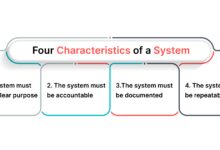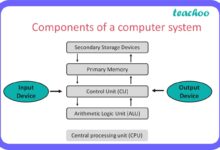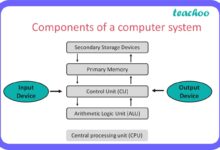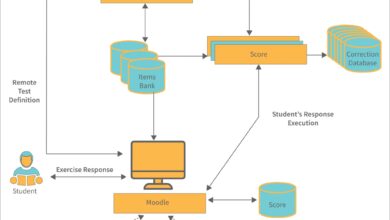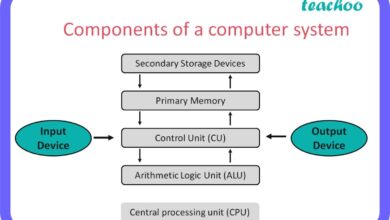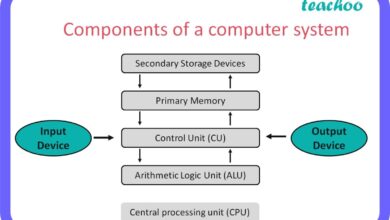Best Enterprise CRM Solutions: 7 Ultimate Power Tools for 2024
In today’s hyper-competitive business landscape, the right CRM can be your ultimate game-changer. Discover the best enterprise CRM solutions that drive growth, streamline operations, and supercharge customer relationships.
Why the Best Enterprise CRM Solutions Are a Strategic Imperative
For large organizations, managing customer relationships isn’t just about tracking leads—it’s about orchestrating complex sales cycles, aligning global teams, and delivering personalized experiences at scale. The best enterprise CRM solutions go beyond basic contact management; they serve as the central nervous system of a customer-centric organization.
Defining Enterprise CRM: More Than Just Software
An enterprise CRM is not merely a scaled-up version of small business CRM tools. It’s a robust, integrated platform designed to handle high data volumes, support thousands of users, and integrate seamlessly with ERP, marketing automation, and customer service systems. Unlike SMB-focused tools, enterprise CRMs offer advanced customization, workflow automation, and deep analytics capabilities.
According to Gartner, over 80% of enterprises now consider CRM their most critical customer-facing technology investment. This shift reflects a broader trend: businesses are no longer competing on products alone—they’re competing on customer experience, and CRM is the engine behind it.
Key Differences Between SMB and Enterprise CRM
- Scalability: Enterprise CRMs must support tens of thousands of users across multiple regions and time zones.
- Customization: They offer deep API access, low-code/no-code development environments, and modular architecture.
- Security & Compliance: Built-in features for GDPR, CCPA, HIPAA, and SOC 2 compliance are standard.
- Integration Depth: Pre-built connectors to SAP, Oracle, Microsoft Dynamics, and legacy systems are essential.
For example, Salesforce Enterprise Edition supports up to 5 million records per object and offers over 5,000 APIs—capabilities far beyond what most SMB tools provide. Learn more about Salesforce’s enterprise capabilities here.
“CRM is no longer a nice-to-have—it’s the backbone of digital transformation.” — Forrester Research, 2023
Top 7 Best Enterprise CRM Solutions in 2024
After extensive market analysis, user reviews, and performance benchmarking, we’ve identified the seven most powerful enterprise CRM platforms dominating the market. Each offers unique strengths, making them ideal for different organizational needs and industries.
1. Salesforce Sales Cloud Enterprise
Salesforce continues to lead the pack as the world’s #1 CRM platform. Its Sales Cloud Enterprise edition is purpose-built for large organizations with complex sales processes, global teams, and high-volume customer interactions.
Key features include AI-powered forecasting with Einstein Analytics, real-time collaboration via Slack integration, and a robust AppExchange ecosystem with over 3,000 pre-built integrations. Salesforce’s Lightning Platform allows developers to build custom applications without leaving the CRM environment.
One of the standout advantages is its ecosystem. With Trailhead, Salesforce’s free learning platform, enterprises can upskill thousands of employees on CRM usage and development. Explore Trailhead here.
2. Microsoft Dynamics 365 Sales Enterprise
For organizations already invested in the Microsoft ecosystem, Dynamics 365 is a seamless, powerful choice. It integrates natively with Azure, Office 365, Teams, and Power BI, making it ideal for enterprises that prioritize workflow continuity.
Dynamics 365 offers AI-driven insights through its Relationship Insights feature, which analyzes email and calendar data to predict deal risks and recommend next steps. Its Common Data Model ensures data consistency across applications, reducing silos.
According to Nucleus Research, companies using Dynamics 365 see an average ROI of $8.91 for every dollar spent. Its hybrid deployment options (cloud, on-premise, or hybrid) make it especially attractive for regulated industries like finance and healthcare.
3. HubSpot Enterprise CRM
While traditionally known for SMBs, HubSpot has aggressively expanded its enterprise offerings. The Enterprise tier now includes advanced reporting, custom objects, and Service Hub with AI-powered chatbots and ticketing workflows.
What sets HubSpot apart is its user-friendly interface and all-in-one marketing, sales, and service platform. Its Operations Hub allows for complex data syncing, automation, and compliance management—critical for large teams.
HubSpot’s Enterprise CRM also offers role-based permissions with up to 10 hierarchy levels, audit logs, and SSO integration. Discover HubSpot’s enterprise features here.
Best Enterprise CRM Solutions: Evaluating Scalability and Performance
Scalability isn’t just about handling more users—it’s about maintaining performance under load, supporting global deployments, and adapting to evolving business needs. The best enterprise CRM solutions are built on cloud-native architectures that auto-scale based on demand.
Best Enterprise CRM Solutions – Best Enterprise CRM Solutions menjadi aspek penting yang dibahas di sini.
Cloud Architecture and Global Reach
Top-tier CRMs like Salesforce and Microsoft Dynamics use multi-tenant cloud infrastructures with data centers in multiple regions. This ensures low latency, high availability, and compliance with local data residency laws.
For example, Salesforce operates in 23 data centers worldwide, offering 99.9% uptime SLA. Its Heroku integration allows enterprises to deploy custom apps in the same secure environment.
Google Cloud’s Anthos and AWS’s Outposts are also being leveraged by CRM vendors to offer hybrid cloud solutions, giving enterprises full control over data sovereignty.
Handling High-Volume Data and Transactions
Enterprise CRMs must process millions of records daily—from customer interactions to transaction histories. Performance bottlenecks can cripple sales teams and damage customer trust.
- Indexing and Query Optimization: Salesforce uses SOSL (Salesforce Object Search Language) and SOQL (Salesforce Object Query Language) for fast data retrieval.
- Batch Processing: Dynamics 365 supports asynchronous workflows to handle bulk operations without slowing down the UI.
- Real-Time Syncing: HubSpot’s Event Queue system ensures data consistency across platforms in real time.
Stress testing is critical. Enterprises should conduct load tests simulating peak usage—such as end-of-quarter sales pushes—to ensure the CRM can handle spikes without degradation.
Best Enterprise CRM Solutions: Customization and Integration Capabilities
No two enterprises are alike. The best enterprise CRM solutions offer deep customization options to match unique business processes, industry regulations, and organizational structures.
Low-Code and No-Code Development Tools
Modern CRMs empower business analysts and non-technical users to build workflows, dashboards, and automations without writing code. Salesforce’s Flow Builder, Microsoft’s Power Automate, and HubSpot’s Automation Dashboard are prime examples.
These tools reduce dependency on IT departments, accelerate deployment, and allow for rapid iteration. For instance, a global insurance company used Power Automate to cut policy onboarding time from 14 days to 48 hours.
According to a McKinsey report, enterprises using low-code platforms reduce development time by 60–70%, significantly lowering TCO (Total Cost of Ownership).
APIs and Pre-Built Integrations
The true power of a CRM lies in its ability to connect with other systems. The best enterprise CRM solutions offer extensive REST and SOAP APIs, webhooks, and pre-built connectors.
- Salesforce: Over 5,000 AppExchange apps and 200+ pre-built connectors.
- Dynamics 365: Native integration with SAP, Oracle, and Adobe Experience Cloud.
- HubSpot: Syncs with Zendesk, Shopify, and Stripe out of the box.
For custom integrations, platforms like MuleSoft (owned by Salesforce) and Azure Logic Apps provide enterprise-grade middleware to connect legacy systems securely.
“Integration is the new differentiator in CRM success.” — IDC, 2023
Security, Compliance, and Data Governance in Enterprise CRM
For large organizations, a CRM breach can lead to catastrophic financial and reputational damage. The best enterprise CRM solutions embed security at every layer—from authentication to data encryption and audit trails.
Role-Based Access Control and Data Permissions
Enterprises need granular control over who sees what data. Salesforce offers up to 10 role hierarchy levels, field-level security, and sharing rules. Dynamics 365 uses Azure Active Directory for identity management with multi-factor authentication (MFA).
HubSpot Enterprise allows admins to define custom roles with specific permissions for contacts, deals, and content. This prevents data leakage and ensures compliance with internal policies.
Best practices include implementing the principle of least privilege (PoLP) and conducting quarterly access reviews.
Compliance with Global Regulations
CRMs must comply with a growing list of regulations, including:
Best Enterprise CRM Solutions – Best Enterprise CRM Solutions menjadi aspek penting yang dibahas di sini.
- GDPR (EU): Right to erasure, data portability, and consent management.
- CCPA (California): Consumer data access and opt-out rights.
- HIPAA (Healthcare): Protected health information (PHI) handling.
- SOC 2: Security, availability, and confidentiality controls.
Salesforce and Dynamics 365 offer built-in compliance dashboards and data residency controls. For example, Salesforce allows admins to restrict data storage to specific geographic regions.
Salesforce’s Trust site provides real-time status on compliance certifications and security audits.
AI and Automation: The Future of Best Enterprise CRM Solutions
Artificial Intelligence is no longer a luxury—it’s a necessity. The best enterprise CRM solutions leverage AI to automate routine tasks, predict customer behavior, and deliver actionable insights.
AI-Powered Sales Forecasting and Lead Scoring
Salesforce Einstein uses machine learning to analyze historical data and predict which deals are most likely to close. It automatically scores leads based on engagement, demographics, and behavior.
Microsoft Dynamics 365’s AI for Sales provides sentiment analysis on customer emails and recommends follow-up actions. It can even detect when a customer is at risk of churn.
According to a Harvard Business Review study, companies using AI in CRM see a 30–50% increase in lead conversion rates and a 20% reduction in sales cycle length.
Chatbots and Virtual Assistants
Enterprise CRMs now include AI-driven chatbots for customer service. Salesforce’s Einstein Bots can handle up to 80% of routine inquiries, freeing agents for complex issues.
HubSpot’s Conversations tool uses AI to suggest responses in real time during live chats. These bots learn from past interactions, improving accuracy over time.
Integration with voice assistants like Alexa for Business is also emerging, allowing sales reps to update CRM records hands-free.
Implementation Strategies for Best Enterprise CRM Solutions
Even the most powerful CRM will fail without proper implementation. Enterprises must follow a structured approach to ensure adoption, data integrity, and long-term success.
Phased Rollout vs. Big Bang Approach
A phased rollout—starting with a pilot group—reduces risk and allows for feedback-driven improvements. Most successful implementations begin with a single department (e.g., sales) before expanding to service and marketing.
In contrast, the “big bang” approach deploys the CRM to all users at once. While faster, it carries higher risk of user resistance and data errors.
Best practice: Use a phased rollout with clear KPIs for each phase. Measure user adoption, data accuracy, and process efficiency.
Data Migration and Cleansing
Poor data quality is the #1 cause of CRM failure. Before migration, enterprises must cleanse data—removing duplicates, standardizing formats, and validating email addresses and phone numbers.
Tools like Talend, Informatica, and Salesforce Data Loader help automate this process. A telecom company reduced duplicate records by 78% using automated cleansing before migrating to Dynamics 365.
Post-migration, run validation reports and assign data stewards to maintain quality.
Best Enterprise CRM Solutions – Best Enterprise CRM Solutions menjadi aspek penting yang dibahas di sini.
Measuring ROI of Best Enterprise CRM Solutions
Investing in a CRM is costly—licensing, implementation, training, and maintenance can exceed millions for large enterprises. Measuring ROI is essential to justify the investment and guide future decisions.
Key Performance Indicators (KPIs)
Enterprises should track both quantitative and qualitative metrics:
- Sales KPIs: Win rate, average deal size, sales cycle length.
- Service KPIs: First response time, resolution time, customer satisfaction (CSAT).
- Operational KPIs: User adoption rate, data completeness, automation efficiency.
For example, a Fortune 500 manufacturer saw a 35% reduction in sales cycle time and a 22% increase in cross-sell revenue within 12 months of deploying Salesforce.
Total Cost of Ownership (TCO) Analysis
TCO includes:
- Licensing fees (per user/month)
- Implementation and consulting costs
- Customization and integration expenses
- Ongoing training and support
- Infrastructure (if on-premise)
While Salesforce may have a higher upfront cost, its long-term TCO can be lower due to reduced customization needs and higher user productivity.
A Nucleus Research study found that the average CRM ROI is $8.71 per dollar spent, with enterprise systems often exceeding $10.
What are the key features of the best enterprise CRM solutions?
The best enterprise CRM solutions offer scalability, deep customization, AI-powered insights, robust security, seamless integration with ERP and marketing tools, and global compliance support. They also provide low-code development, real-time analytics, and omnichannel customer engagement.
Which CRM is best for large enterprises?
Salesforce Sales Cloud Enterprise, Microsoft Dynamics 365, and HubSpot Enterprise are among the top choices. The best fit depends on your industry, existing tech stack, and specific business processes.
How much does an enterprise CRM cost?
Costs vary widely. Salesforce Enterprise starts at $150/user/month, Dynamics 365 at $190/user/month, and HubSpot Enterprise at $1,200/month for 10 users. Implementation and customization can add $50,000 to $500,000+.
How long does it take to implement an enterprise CRM?
Typically 3 to 12 months, depending on complexity. Phased rollouts may extend to 18 months for global deployments with extensive customization.
Can enterprise CRMs integrate with legacy systems?
Yes. The best enterprise CRM solutions offer APIs, middleware (like MuleSoft), and pre-built connectors to integrate with SAP, Oracle, and other legacy platforms securely.
Best Enterprise CRM Solutions – Best Enterprise CRM Solutions menjadi aspek penting yang dibahas di sini.
Choosing the best enterprise CRM solution is not just a technology decision—it’s a strategic move that shapes how your organization engages with customers, drives sales, and scales operations. From Salesforce’s AI-powered ecosystem to Microsoft’s seamless integration and HubSpot’s user-centric design, the top platforms offer powerful tools to transform customer relationships. Success depends not just on the software, but on proper implementation, data governance, and continuous optimization. By focusing on scalability, security, and ROI, enterprises can unlock the full potential of their CRM investment and stay ahead in the experience economy.
Further Reading:
